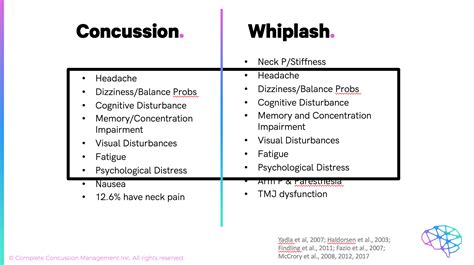Concussions are a growing concern in the world of sports and beyond. As our understanding of the complexities of the human brain expands, so does our knowledge of the impact of concussions on athletes and individuals alike. Virginia Tech, a renowned institution for research and innovation, has been at the forefront of concussion research and treatment. In this article, we will delve into the work being done at Virginia Tech and explore the latest perspectives on concussion research and treatment.
Understanding Concussions
Before we dive into the specifics of Virginia Tech's concussion research and treatment initiatives, it's essential to understand what concussions are and how they occur. Concussions, also known as mild traumatic brain injuries (mTBI), are a type of head injury that can occur when the brain is subjected to a sudden impact or jolt. This can happen in various settings, including sports, car accidents, or even falls.
Concussions can cause a range of symptoms, from mild to severe, including:
- Headaches and dizziness
- Confusion and disorientation
- Memory loss and difficulty concentrating
- Mood changes, such as irritability and anxiety
- Sleep disturbances
Virginia Tech's Concussion Research
Virginia Tech has been actively involved in concussion research for over a decade, with a focus on improving our understanding of the injury and developing effective treatments. The university's concussion research program is led by Dr. Stefan Duma, a renowned expert in the field.
One of the key areas of focus for Virginia Tech's concussion research is the development of better helmets and protective gear. The university's researchers have been working with manufacturers to design and test helmets that can reduce the impact of a blow to the head. This work has led to the development of helmets that can absorb and distribute the force of an impact, reducing the risk of concussion.

In addition to helmet research, Virginia Tech is also exploring the use of advanced technologies, such as sensors and algorithms, to detect concussions. This work has the potential to revolutionize the way we diagnose and treat concussions, allowing for more accurate and timely interventions.
Concussion Treatment Perspectives
While research is ongoing, there are already several effective treatments for concussions. Virginia Tech's concussion treatment program is led by Dr. James McClain, a sports medicine physician with extensive experience in concussion care.
One of the key principles of concussion treatment is rest and recovery. This means avoiding activities that exacerbate symptoms, such as physical exertion or cognitive stimulation. In addition to rest, other treatments may include:
- Pain management: Over-the-counter pain medications, such as acetaminophen or ibuprofen, can help manage headaches and other symptoms.
- Cognitive rehabilitation: This involves a range of activities, such as puzzles, games, and cognitive exercises, to help improve memory, attention, and other cognitive functions.
- Vestibular rehabilitation: This type of therapy focuses on improving balance and reducing dizziness and other vestibular symptoms.
Returning to Play
One of the most critical aspects of concussion treatment is returning to play. This is a complex process that requires careful evaluation and monitoring to ensure that the athlete is ready to safely return to competition.
Virginia Tech's concussion treatment program uses a gradual return-to-play protocol, which involves a series of steps to assess the athlete's readiness to return to play. This includes:
- Symptom evaluation: Athletes are monitored for symptoms, such as headaches and dizziness, and are not allowed to progress to the next step until symptoms have resolved.
- Cognitive evaluation: Athletes are assessed for cognitive function, including memory and attention, to ensure that they are able to safely return to competition.
- Physical evaluation: Athletes are evaluated for physical symptoms, such as balance and coordination, to ensure that they are ready to return to play.

Conclusion
In conclusion, Virginia Tech's concussion research and treatment initiatives are at the forefront of our understanding of this complex injury. From developing better helmets and protective gear to exploring advanced technologies for detection and diagnosis, Virginia Tech is leading the way in concussion research. Additionally, the university's concussion treatment program provides a comprehensive approach to care, including rest and recovery, cognitive rehabilitation, and vestibular rehabilitation. By understanding the complexities of concussions and developing effective treatments, we can reduce the risk of long-term damage and improve outcomes for athletes and individuals alike.
Gallery of Concussion Research and Treatment






What is a concussion?
+A concussion is a type of traumatic brain injury caused by a blow to the head or a sudden jolt to the body. It can cause a range of symptoms, including headaches, dizziness, and memory loss.
What are the symptoms of a concussion?
+The symptoms of a concussion can include headaches, dizziness, memory loss, mood changes, and sleep disturbances.
How is a concussion diagnosed?
+A concussion is typically diagnosed through a combination of physical examination, cognitive evaluation, and symptom assessment.
